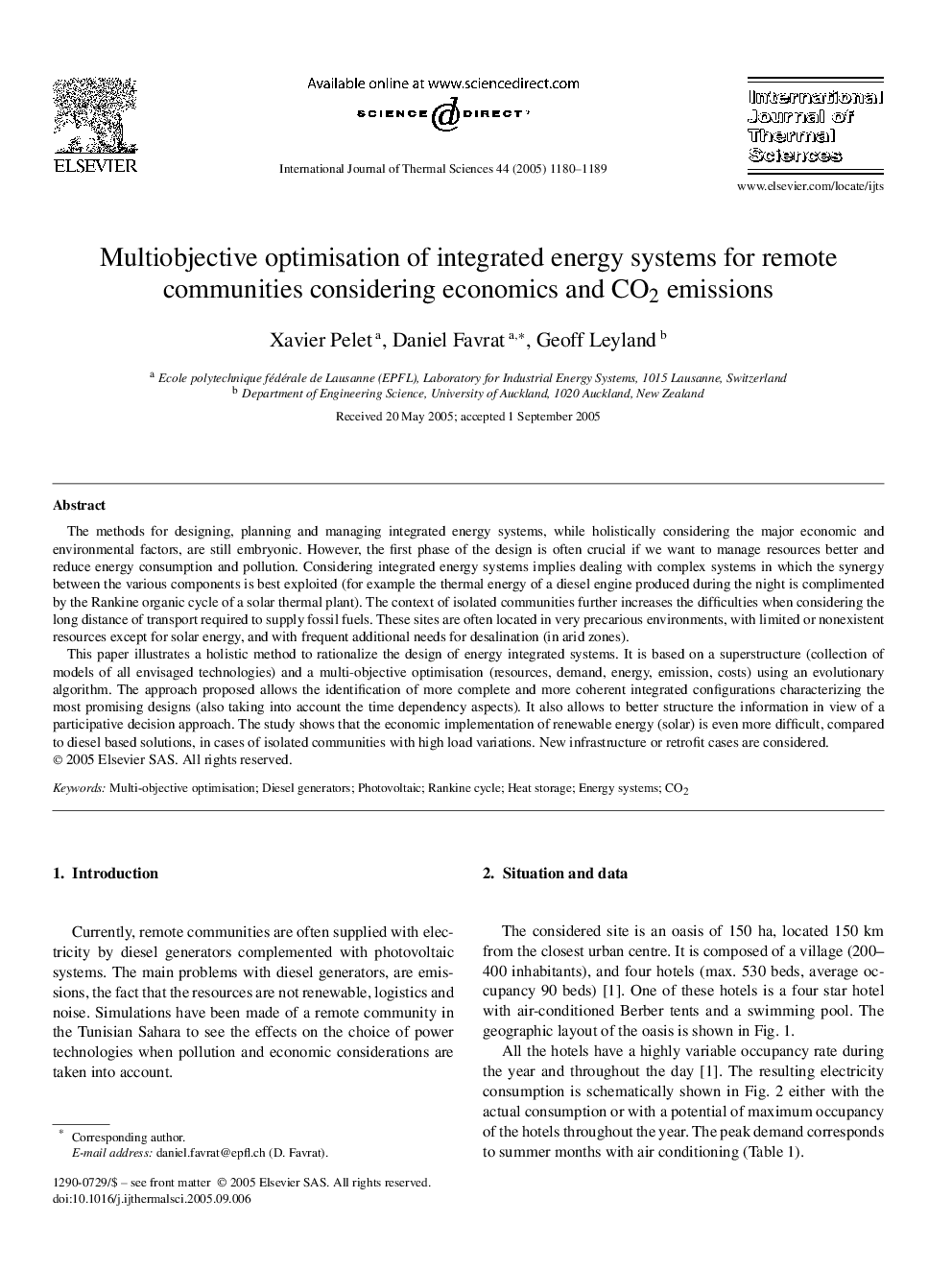| Article ID | Journal | Published Year | Pages | File Type |
|---|---|---|---|---|
| 9692809 | International Journal of Thermal Sciences | 2005 | 10 Pages |
Abstract
This paper illustrates a holistic method to rationalize the design of energy integrated systems. It is based on a superstructure (collection of models of all envisaged technologies) and a multi-objective optimisation (resources, demand, energy, emission, costs) using an evolutionary algorithm. The approach proposed allows the identification of more complete and more coherent integrated configurations characterizing the most promising designs (also taking into account the time dependency aspects). It also allows to better structure the information in view of a participative decision approach. The study shows that the economic implementation of renewable energy (solar) is even more difficult, compared to diesel based solutions, in cases of isolated communities with high load variations. New infrastructure or retrofit cases are considered.
Keywords
Related Topics
Physical Sciences and Engineering
Chemical Engineering
Fluid Flow and Transfer Processes
Authors
Xavier Pelet, Daniel Favrat, Geoff Leyland,
